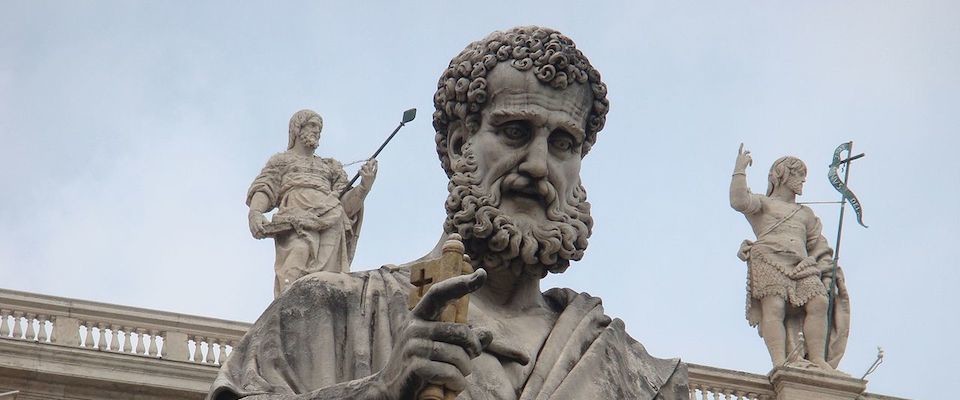True Synodality: A Missing Ingredient in Renewal?

Fr. George W. Rutler: How to Write Your Own Encyclical
September 23, 2019
Trump’s Focus on Religious Freedom at UN Should Lead the Way, by Emilie Kao/Joel Griffith
September 23, 2019
Photo by Yorkshiremany via Creative Commons. Image cropped.
By Dr. Jeff Mirus, Catholic Culture, Sept. 20, 2019
 Recently I had an interesting discussion with a frequent visitor to our website about the potential benefits to the Church of being without a pope for an extended number of years. In part the discussion was prompted by the deleterious impact the current pontificate seems to have on Catholic renewal, in part also (I suspect) because my correspondent does not have the same appreciation I have for the last several popes, and certainly in part because the contemporary perception of the papacy as a central control center may tend to inhibit local initiatives.
Recently I had an interesting discussion with a frequent visitor to our website about the potential benefits to the Church of being without a pope for an extended number of years. In part the discussion was prompted by the deleterious impact the current pontificate seems to have on Catholic renewal, in part also (I suspect) because my correspondent does not have the same appreciation I have for the last several popes, and certainly in part because the contemporary perception of the papacy as a central control center may tend to inhibit local initiatives.
My correspondent offered the insight that the centralization of authority in the Church as practiced today is not essential to the Church. Such centralization has not even been possible throughout most of her history, when local bishops and missionaries had to be effective leaders in their own right because communications with Rome varied from slow to rare. Thus my correspondent imagined the potential benefits of, say, a hung-conclave that could not elect the next pope, leaving the office vacant for a good long time. This might offer not only a measure of protection against the influence of a bad pope, but also an increased pressure on local bishops to look to their own resources and tend their own flocks.
I found this idea fascinating, but how is it to be evaluated? Practical good can come out of any adverse situation, depending on how we (or our bishops) respond to it, and certainly Divine Providence often works through adversity. But in desiring particular situations we must first ask not whether we might respond to them advantageously but whether they are good in themselves. In this case, then, the initial question is whether it is acceptable theologically for a Catholic to wish for a temporal suspension of the papacy per se. Since the Petrine office is the capstone of the Divine constitution of the Church, and since in that office are placed both the unique power of the keys to heaven and the Divine mandate to confirm all bishops (and indeed the whole Church) in a right faith, it follows that the loss of these prerogatives cannot be legitimately desired, not even for the best of practical reasons. ….




